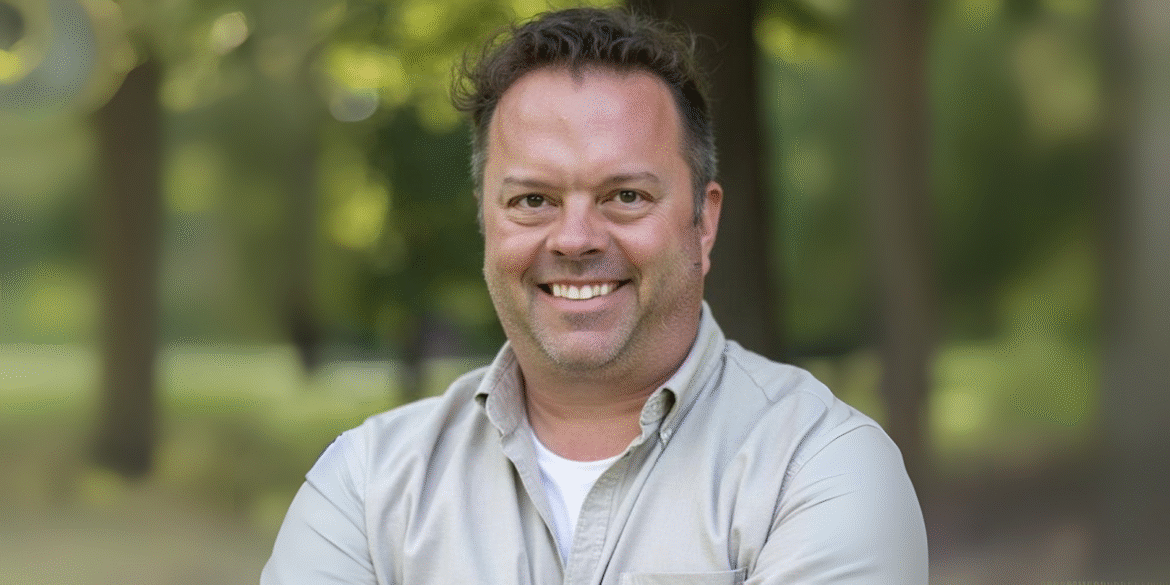Chris Easterly’s memoir provides a courageous look into depression, offering readers a journey toward healing through faith and personal reflection.
In the quiet moments of despair, when the weight of the world feels insurmountable, it can be easy to feel isolated—lost in the shadows of mental illness. For those who struggle with depression, finding connection, understanding, and a path forward can sometimes seem like an impossible task. Chris Easterly, a celebrated screenwriter, filmmaker, and author, knows this truth all too well. But through his latest work, And the Darkness Did Not Overcome: A Christian’s Memoir of Depression, he offers readers a profound gift: the hope that healing is possible through the power of faith, therapy, and self-awareness.
In this memoir, Easterly brings the same storytelling prowess that earned him acclaim in Hollywood, blending vulnerability and honesty with spiritual depth. This is a deeply personal story of his own battle with depression—how it nearly consumed him, and ultimately, how he found strength and solace in both his faith and the support of mental health professionals.
A Creative Career Marked by Faith and Pain
Chris Easterly’s career began in the entertainment industry, where he earned recognition as a talented screenwriter and filmmaker. Graduating from the prestigious Warner Brothers Television Writers Workshop, Easterly’s writing has graced some of the most prominent networks, including Fox, NBC, Cartoon Network, and Hallmark Channel. As a director, his feature debut Devil’s Hollow gained attention as an official selection at the SOHO International Film Festival and the Golden State Film Festival.
Yet behind the accolades, Easterly’s life was also marked by the battle he faced with depression. For years, he kept this struggle hidden from the public eye, focusing instead on his creative work, which garnered critical acclaim and professional success. But as Easterly shares in And the Darkness Did Not Overcome, there came a point where keeping his story in the shadows no longer felt authentic.
The decision to write this memoir came not just as a professional endeavor, but as a personal one. It was his way of making sense of his own experience, of showing others that they aren’t alone in their struggles, and offering them the tools that helped him regain control of his life.
Finding Healing: The Intersection of Faith and Therapy
Easterly’s memoir is unique in its treatment of mental illness because it doesn’t just rely on one path toward healing. Instead, it offers a multifaceted approach that integrates his Christian faith with practical mental health tools, such as therapy and medication. This integration is crucial for many readers, particularly those who, like Easterly, may feel torn between the support of spiritual guidance and the need for professional mental health care.

The author’s narrative is striking because it doesn’t offer simple solutions. Instead, it provides a roadmap for how to live with and navigate depression, showing that healing is a journey, not a destination. Easterly’s humility and willingness to be candid about his use of therapy and medication break down the walls of stigma surrounding mental health care, particularly within religious communities.
“I think faith can sometimes be misunderstood as something that automatically cures all problems,” Easterly writes. “For me, faith provided the foundation, but therapy and medication were important in helping me take the necessary steps to heal.”
For those unfamiliar with or hesitant to seek professional help, Easterly’s openness offers a comforting invitation to explore therapy, to see it as part of a holistic approach to healing that respects both the mind and spirit.
A Memoir for Those Seeking Healing
At its core, And the Darkness Did Not Overcome is a story of hope. It’s not about an immediate fix or a quick cure; it’s about understanding the complexity of depression and finding the courage to face it head-on. For readers struggling with similar issues, Easterly’s memoir offers a gentle reminder that healing is possible when you embrace both faith and medical help.
Easterly’s words resonate with those who are exhausted by the struggle of managing their mental health, and yet they also offer a way forward.
This integration of faith and mental health care is what makes Easterly’s approach so special. He doesn’t claim to have all the answers, but he provides a compassionate framework for anyone dealing with depression, offering a new way to view their suffering—one that acknowledges the darkness without letting it define them.
The Power of Vulnerability in Storytelling
Easterly’s willingness to open up about his own battles with mental illness is, in itself, a powerful act. In a world that often values success and strength over vulnerability, Easterly’s memoir serves as a testament to the power of telling one’s truth. His candid writing invites readers to reflect on their own experiences and feel empowered to speak about their struggles without shame.
Through his transparency, Easterly has created a safe space for individuals to understand and confront their own mental health challenges. His message is simple but profound: You are not alone, and healing is within reach.
Take the First Step Toward Healing
For anyone struggling with depression or feeling lost in their mental health journey, And the Darkness Did Not Overcome offers a heartfelt invitation to explore the intersection of faith and therapy. Chris Easterly’s message is clear: Healing is not about erasing pain, but about learning how to live with it, grow from it, and ultimately, overcome it.
Visit Chris Easterly Books to read more about And the Darkness Did Not Overcome and discover the strength that comes from combining spiritual resilience with the tools of modern mental health care.
Start your journey to healing today with Chris Easterly’s powerful memoir—a story of faith, courage, and the hope found in the darkest of times.


